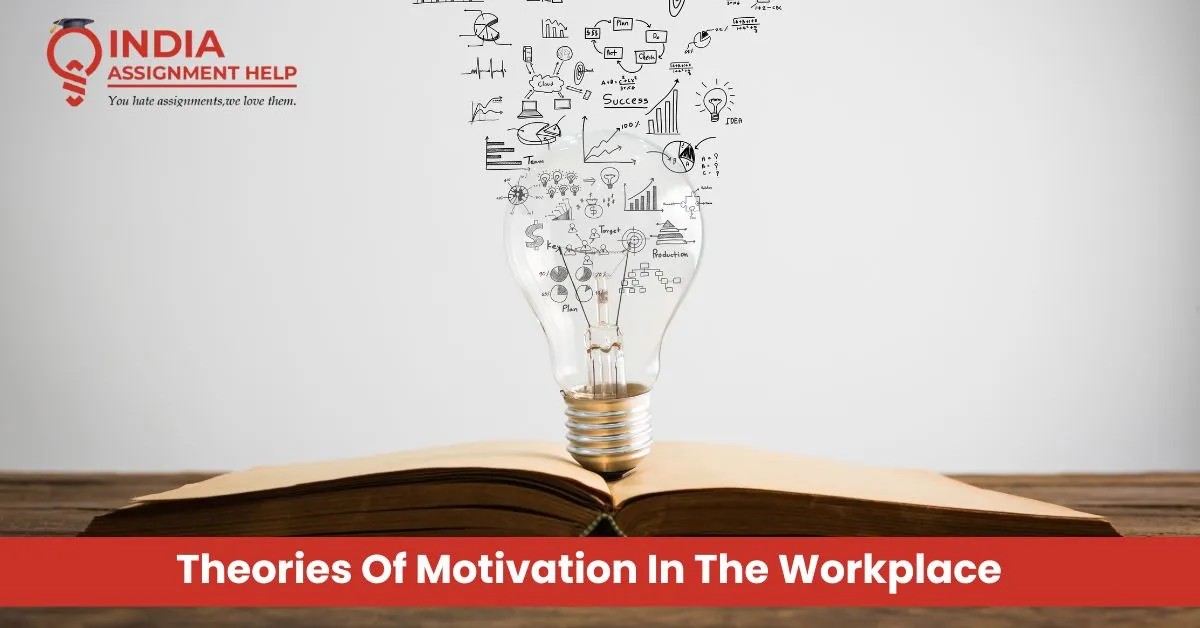Theories Of Motivation In The Workplace Assignment Help

Employee productivity, morale, and the success of the organization depend on motivation. It gives leaders an understanding of motivational factors that would set up engaging environments that would empower and value the employees. Using these principles creates teamwork and promotes innovation in a team. Theories of Motivation in the Workplace assignment help explain more on this crucial organizational dynamic.
Maslow’s Hierarchy Of Needs And Employee Engagement
From basic needs like fair pay to self-actualization, Maslow’s theory suggests a hierarchy. These levels of loyalty and innovation are addressed especially recognition and growth. This framework relates employee needs to engagement. Theories of Motivation in the Workplace homework help provide a closer look at this motivational structure.
Herzberg’s Two-Factor Theory: Hygiene And Motivation
Hygiene factors such as job security and motivators such as recognition are what keep an employee satisfied, according to Herzberg. There are hygiene factors that prevent people from being dissatisfied, and there are motivators that drive people to do something more about it. These elements need to be balanced to build a productive workforce. In the theories of Motivation in the Workplace assignment expert explains how this theory can be effectively applied in the workplace.
Self-Determination Theory: Autonomy, Competence, And Relatedness
The self-determination theory focuses on the intrinsic motivation of autonomy, competence, and relatedness. Employees are most effective when they have some control over what they are doing, feel capable, and feel part of a community at work. But this approach helps to engage and to be creative. Theories of Motivation in the Workplace assignment service offers practical insights into incorporating this theory of motivation in the workplace.
Expectancy Theory: Aligning Effort With Rewards
Expectancy theory states that the effort that will motivate performance should match the outcome it produces. Employees value their contribution because of clear goals and fair compensation. Trust and productivity are increased when expectations are met with outcomes. By doing my Theories of Motivation in the Workplace assignment, you can investigate how this theory increases employee performance.
Simplify Learning With Theories Of Motivation In The Workplace Homework Help
Professional homework help will help you master the complexities of workplace motivation. You get to gain insights into key theories like Maslow’s hierarchy and Herzberg’s two-factor theory. Clarity and academically the user can achieve success with expert guidance. Homework helps with theories of motivation in the workplace and furthers your knowledge to move further in organizational dynamics.
Goal-Setting Theory And Performance Optimization
Specific and challenging goals have positive consequences on people’s performance, this is highlighted by goal?setting theory. Feedback means progress, and helps align individual and organizational priorities. Accountability and innovation are fostered with this approach, it’s key to workplace success. Learn how to implement goal setting effectively by Theories of Motivation in the Workplace assignment services.
Future Career Options
Those well-versed in workplace motivation theories have careers in human resources, organizational psychology, leadership consulting, and talent management. They are professionals who design strategies, maximize employee engagement, and drive organizational growth in today’s business landscapes.
Achieve Excellence: Pay For Theories Of Motivation In The Workplace Assignment Services
We help you invest in your academic success through assignments on workplace motivation theories, which have been crafted by experts. Opt for India Assignment Help, to get the best-researched and personalized solutions that improve your knowledge and grade. Stop wasting time and take accuracy for granted.
Conclusion
From theories of motivation in the workplace stems frameworks to understand, and subsequently impact, employee engagement, satisfaction, and performance. The application of these principles results in dynamic environments that positively sustain employees. This results in more productivity and innovation in an organization, leading to its long-term success.
FAQs
Q1. What are the key theories of motivation in the workplace?
Ans. Famous theories are Maslow’s hierarchy of needs, Herzberg’s two-factor theory, Expectancy theory, Self-determination theory, and goal-setting theory.
Q2. Can someone do my Theories of Motivation in the Workplace assignment?
Ans. Yes, you can utilize expert services to complete your assignment and know more about its main concepts.
Q3. How does motivation impact workplace productivity?
Ans. Engaged, satisfied, and motivated employees, result in improved productivity which is ultimately a factor for organizational success.
Q4. What is the role of goal-setting in employee motivation?
Ans. Setting goals helps direct, hold people accountable, and create a feeling of accomplishment, all of which impact performance and create something new in teams.





